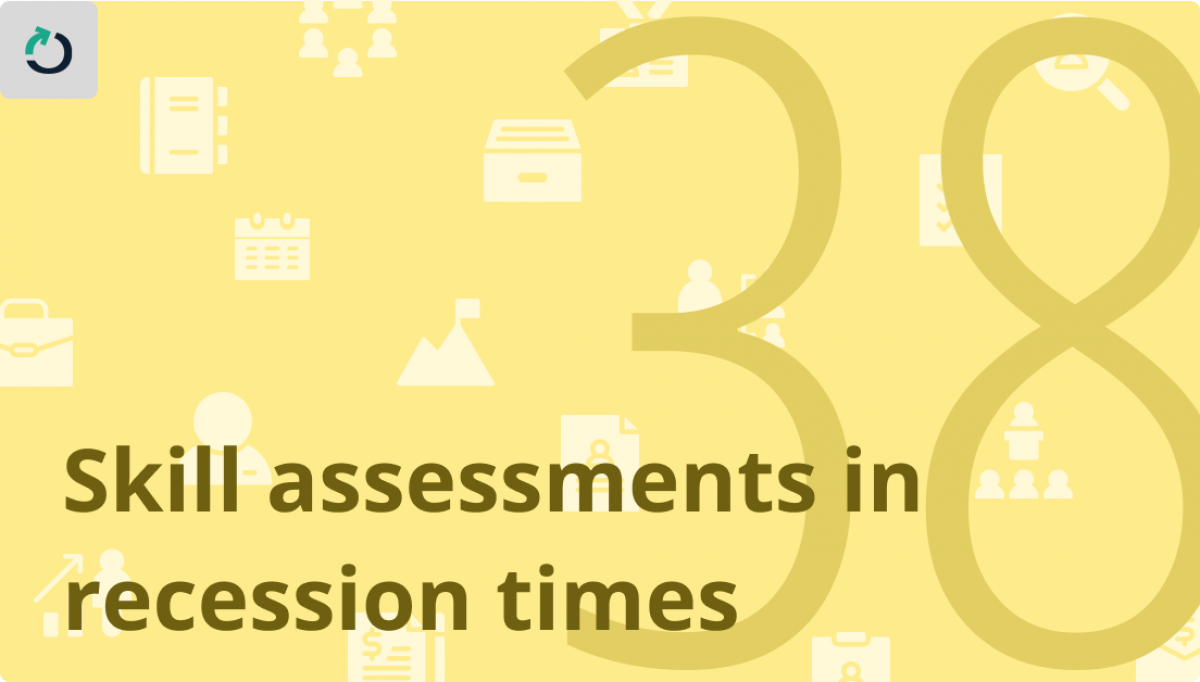As the COVID-19 pandemic continues to impact the global economy, many companies are facing difficult decisions about their staffing needs. During these recessionary times, it's more important than ever for companies to identify and retain top talent to remain competitive and successful. One tool that can help companies achieve this goal is skill assessments.
Skill assessments are a valuable tool for companies looking to identify and retain top talent during recession times. These assessments objectively evaluate a candidate's skills, knowledge, and abilities, allowing companies to make informed hiring decisions and identify opportunities for employee development and upskilling.
Here are some ways in which skill assessments can help companies identify talent during recession times:
Identifying Key Skills: During recession times, companies must be more strategic in hiring decisions. Skill assessments can help identify the essential skills and competencies required for a given role, allowing companies to prioritize candidates who possess these skills. This can help ensure that new hires are able to contribute to the company's success from day one.
Objective Evaluation: One of the challenges of hiring during recession times is the large number of job applicants for each position. Skill assessments provide an objective way to evaluate candidates, allowing companies to compare candidates' skills and abilities in a standardized manner. This can help reduce bias in the hiring process and ensure that the most qualified candidates are selected.
Identifying Potential: Skill assessments can also help identify candidates with the potential for growth and development within the company. By evaluating candidates' current skills and abilities, companies can identify areas for improvement and provide training and development opportunities to help employees grow into new roles and responsibilities. This can help companies retain top talent and maintain a competitive advantage in the long term.
Research supports the use of skill assessments in identifying talent. During recession times, companies that use skill assessments in their hiring process are more likely to identify and retain top talent. Research conducted by LinkedIn found that companies that use skill assessments as part of their hiring process are 36% more likely to identify high-quality candidates. Additionally, candidates who take skill assessments are more likely to be hired than those who do not.
Another study by Aberdeen Group found that companies that use pre-hire assessments are 36% more likely to retain top talent. These assessments can help identify candidates with the skills and competencies required for a given role and candidates with the potential for growth and development within the company.
Skill assessments can also help companies identify candidates with the right cultural fit. During recession times, it's crucial for companies to maintain a positive and productive workplace culture. Skill assessments can help identify candidates who share the company's values and can work effectively within the existing team.
For example, a study conducted by Harvard Business Review found that cultural fit is a key predictor of employee retention. Candidates who share the company's values and culture are more likely to remain with the company in the long term, reducing turnover and associated costs.
Overall, skill assessment tools like Merreo are a valuable tools for companies looking to identify and retain top talent during recession times. These assessments objectively evaluate candidates, identify critical skills and competencies, and identify employee development and upskilling opportunities. By using skill assessments as part of their hiring process, companies can make informed hiring decisions and maintain a competitive advantage in the long term.





